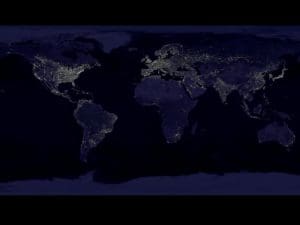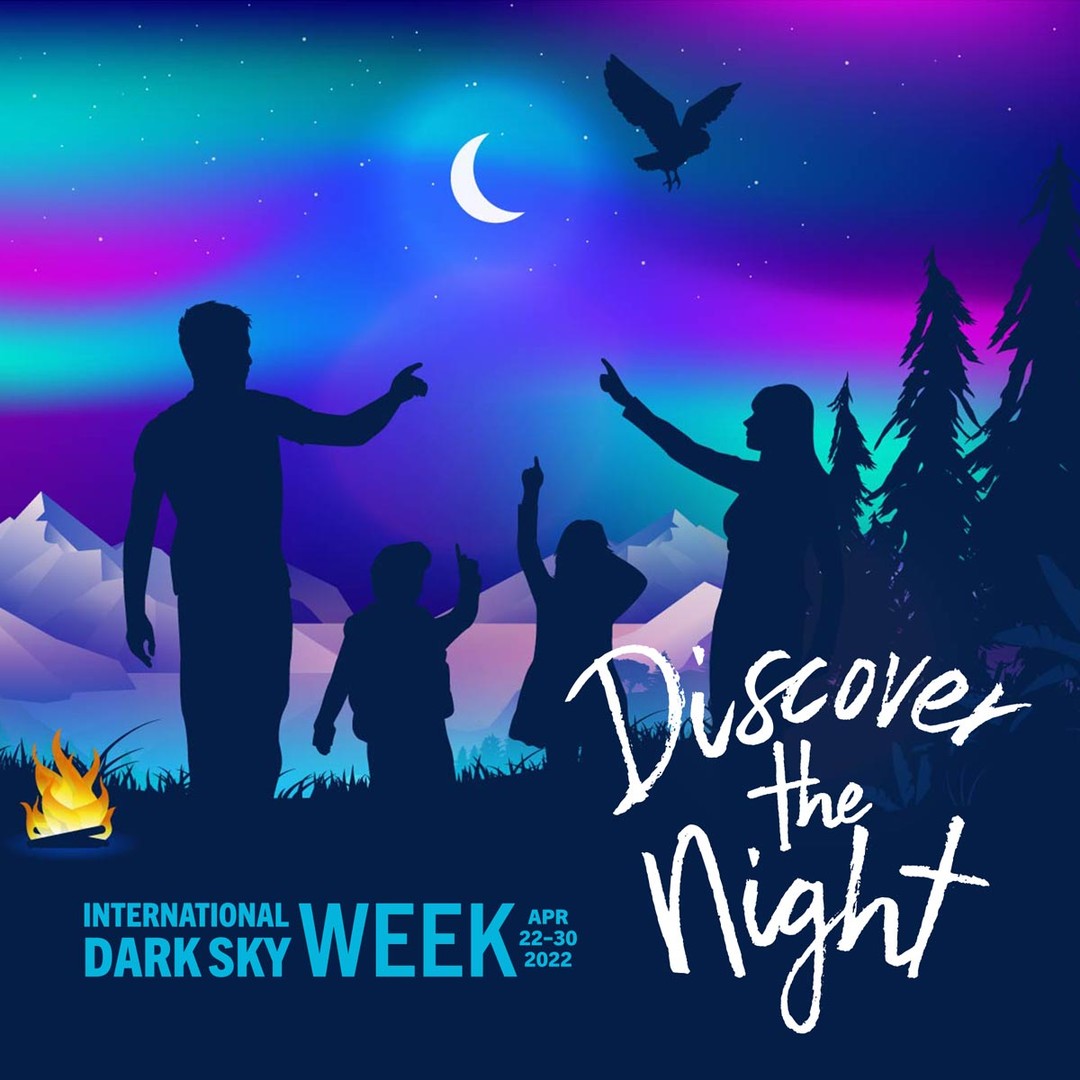Blinded by the Light
By Cosmic Strings In Cosmic StringsAnyone who’s read a few of my posts on this blog will know that, from time to time, I have to get up on my soapbox.
Today is one of those times.
International Dark Sky Week is coming – April 22 through April 30. I’ve talked to many people about light pollution over the years, and it always amazes me that so few people understand how big a problem it is, and how easy it is to solve it. Light pollution is the encroachment of light where we don’t want it – especially into the night sky. And eliminating it is as easy as controlling and reducing our light usage.


Earth at night. While the lights may seem beautiful, they represent millions of dollars worth of wasted energy, as this light is simply sent out into space for no reason. Image courtesy NASA.
Now don’t misunderstand, no one is saying that we should never use lights at night. That would be dangerous and foolish. What we can do is control our use of light – use our lights well, and prevent them from shining up into the sky where all they do waste money and energy washing out our view of the sky and lighting up the underbellies of birds and airplanes. Putting a little thought and effort into quality light design, rather than just slapping up lights all over the place, will save us money and help us to regain our view of the cosmos.
The main objection to this idea is always the same – if we don’t have tons of light at night, crime will run rampant. This is simply not true. Study after study has shown that increased lighting does not lead to less crime. In fact, in some cases, more lighting has led to more crime, as we often end up creating “islands of light” surrounded by deep darkness. The darkness gives criminals a good place to hide their movements, while people in the too-brightly-lit areas cannot see into the shadows because their eyes are already overwhelmed. Quality, well-planned lighting can improve safety and reduce crime, but simply throwing light at the problem is ineffective and wasteful.
Again, keep in mind, no one is saying we need to get rid of all our lights. But if we follow a few simple rules, we can improve safety, save money, and see the night again,
- Avoid uplighting. Upward-directed light wastes the most money and energy by sending nearly all of the light into the sky where it does no good for anyone. Instead, direct your lights downward, and make sure your fixtures don’t allow light to shine any higher than a ninety degree angle.
- Use timers and motion sensors. Most lights don’t need to be on all the time. Use a timer to have your lights on only when you need them to be. Motion sensors are particularly effective for outdoor lights, as they will pop on only when needed, providing light for your driveway or property when you’re present, and alerting you if someone is trespassing on your property.
- Check your lighting quality. Walk around your property and look at your lights. Can you see the bulbs of your light fixtures from a distance? If the answer is yes, consider repositioning or replacing your fixtures. Visible bulbs give too much glare, and allow light to shine where it isn’t needed. Always make sure your light fixtures are shielded and providing light where you want it.
- Reduce your fixtures. Many people tend to overlight their property, trying to make the night as bright as daytime. This is unnecessary, and wasteful. Use only the amount of light you need to see clearly. Reducing the number of lights on your property will also reduce your electric bill, and everyone loves that.
Want to learn more about how you can reduce your energy costs and improve your view of the night sky? Check out the International Dark Sky Week website. And make 2022 the year you decide to help save the night sky for generations to come.
Carpe noctem!







No Comment
Sorry, the comment form is closed at this time.